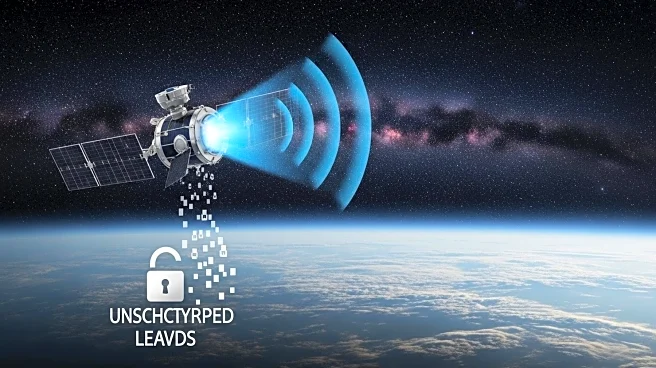What's Happening?
A research paper presented at the Annual Computer Security Applications Conference has revealed that satellite internet services, including those used by T-Mobile, have been transmitting unencrypted data that can be intercepted with relatively inexpensive equipment. The study, conducted by scientists from the University of Maryland and University of California San Diego, found that sensitive data from military, corporate, and private communications could be accessed. While T-Mobile has made changes to address the vulnerability, other providers have yet to fix the issue. The researchers have spent the past year warning satellite operators about the risks of unencrypted transmissions.
Why It's Important?
The findings highlight significant cybersecurity vulnerabilities in satellite communications, which could have serious implications for national security, corporate confidentiality, and personal privacy. The ability to intercept sensitive data poses risks to critical infrastructure and government communications. The research underscores the need for improved encryption standards and cybersecurity measures in satellite services to protect against data breaches and unauthorized access.
What's Next?
Satellite operators are expected to take action to address the vulnerabilities identified in the research. The disclosure may prompt regulatory scrutiny and calls for enhanced cybersecurity protocols in satellite communications. The industry will need to prioritize encryption and data protection to prevent future breaches and safeguard sensitive information.
Beyond the Headlines
The study raises broader concerns about the security of emerging technologies and the importance of proactive measures to protect against cyber threats. It highlights the need for collaboration between researchers, industry, and government to address cybersecurity challenges and ensure the integrity of communication systems.









